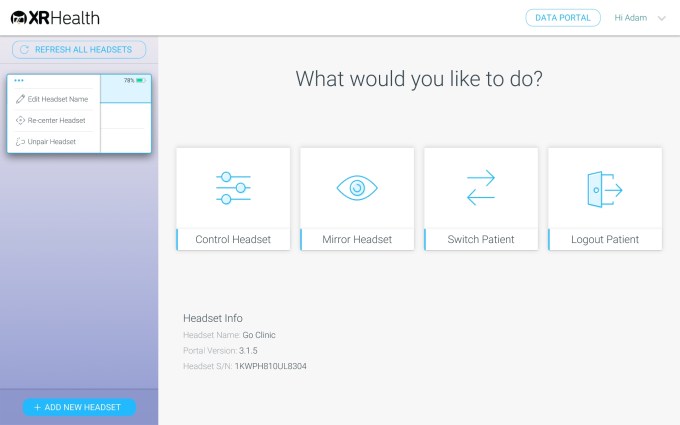
As the pandemic pushes more investors towards examining opportunities in telemedicine, a VR startup building out a platform for remote treatment has closed on new funding.
XRHealth tells TechCrunch that they’ve raised $7 million in funding with backing from Bridges Israel, Flint Capital and 20/20 HealthCare Partners. The startup has raised $15 million to date, including a $4 million seed round complete in late 2018.
Telemedicine has long been seen as a particularly strong fit for VR tech, but adoption has been slow and uneven. Off-the-shelf consumer VR headsets have typically been difficult to use, and dedicated hardware has proven prohibitively expensive to develop.
As doctor’s offices across the country struggle to extensively adopt video conferencing software to meet with and treat patients during the COVID-19 crisis, it may seem like we are a very long way from a VR solution reaching any sort of mainstream appeal.
XRHealth founder Eran Orr has been aiming to position his company as the leading VR health software platform, courting developers to create content that can help people suffering from a variety of ailments. FDA_registered software offered by the company focuses on rehabilitation for back, shoulder and neck injuries; cognitive training; and stress relief. The team has also been exploring leveraging the social features of its platform to allow patients a way to join VR support groups moderated by physicians.

There is a separate web portal for medical professionals which offers quick insights into how patients are progressing through the software and where they are having challenges.
The software is pretty simple, but Orr is hopeful that his startup’s focus on simple exercises can help early patients alter their perception of VR tech.
“VR has been stigmatized as only being for gaming, one of our challenges is convincing the world that it can be helpful,” Orr tells TechCrunch. “By the end of the month we’ll have more than 500 trained clinicians operating our software.”
Consumer can rent the hardware directly from XRHealth. During the COVID-19 crisis, XRHealth is waiving rental fees and is working with insurance providers to waive co-pays so that people can gain access to the headset-based treatment for free. The startup currently ships Vive Focus and Pico Neo 2 headsets to patients, though the software is also compatible with Oculus hardware if patients already own VR hardware.

